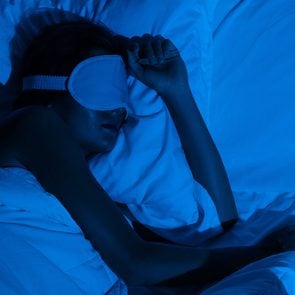This is the Healthiest Time to Eat Dinner

When it comes to maintaining a healthy weight, it's not just what you're eating, but when.
Recent research highlights that the timing of our meals, particularly the last meal of the day, can significantly affect our health. The story is not merely about what we consume, but also about when we do so. The debate about dinner timing finds substantial scientific backing with a Brigham and Women’s Hospital (BWH) study published in Cell Metabolism in October 2022, suggesting that early dinners could have more health benefits than previously believed.
For more wellness updates, sign up for the (free!) Reader’s Digest Health Report.
The science of early dinners
Senior author of the study, Frank A. J. L. Scheer, PhD, Director of the Medical Chronobiology Program in BWH’s Division of Sleep and Circadian Disorders, explained the study’s objective in a press release: “We wanted to test the mechanisms that may explain why late eating increases obesity risk.”
The study defined an early dinner as a meal consumed three to four hours before bedtime, aligning with our body’s circadian rhythm. This time management allows the body to efficiently digest food, process nutrients, and smoothly transition into a fasting mode during sleep, facilitating essential restorative processes (and arguably better sleep, according to some experts).
Find out how to fix your sleep schedule.
The benefits of an early-bird dinner
The BWH study discovered stark differences in metabolic profiles of early and late diners. Early diners demonstrated lower blood glucose levels, improved fat-burning capacity, better sleep quality, and higher energy levels. Meanwhile, late dinners led to increased hunger, slower calorie burning, and elevated fat storage, posing risks for conditions like diabetes and cardiovascular disease.
Further reinforcing these findings, a study published in Obesity Reviews examined the effects of energy intake distribution on weight loss. This systematic review evaluated nine randomized controlled trials and concluded that focusing on earlier energy intake resulted in significantly greater short-term weight loss. Alongside weight loss, improvements were observed in insulin resistance, fasting glucose and LDL cholesterol levels.
Implications and recommendations
These findings hold considerable implications for those dealing with health conditions like diabetes, thyroid issues, polycystic ovarian disease, and cardiovascular disorders. The studies spotlight the importance of early and light dinners, thus prompting a reevaluation of our dinner schedules and meal planning. As first author Nina Vujovic, PhD, put it: “Does the time that we eat matter when everything else is kept consistent? And we found that eating four hours later makes a significant difference for our hunger levels, the way we burn calories after we eat, and the way we store fat.”
Here’s the latest research on how to prevent diabetes.
Tailoring dinner time to fit your schedule
The exact timing of dinner isn’t a one-size-fits-all scenario, as people’s routines vary widely. Maya Feller, MS, RD, CDN, a nutritionist based in Brooklyn, NY, emphasizes that our schedules—ranging from traditional nine-to-five to round-the-clock—are pivotal when considering “ideal” meal times. Therefore, finding a dinner time that seamlessly fits into your schedule is essential, rather than adhering to a strict, potentially unfeasible timetable.
Wendy Bazilian, DrPH, MA, RDN, offers insightful tips for those whose routines may not accommodate an early dinner. She recommends consuming meals or snacks every three to five hours. This regular eating pattern can help stabilize blood sugar levels, preventing the onset of hunger pangs and energy lulls.
Furthermore, it’s advantageous to leave a gap of two to three hours between your last meal and bedtime. This gap ensures your body has sufficient time for most of the digestion process—letting you get adequate rest and repair during sleep.
The takeaway from these studies is clear: An earlier dinnertime might confer multiple health benefits, from metabolic health enhancement to improved sleep quality. It’s time to reconsider not just the contents of your plate, but also the clock. As research grows, it’s becoming apparent that understanding the interplay between our eating habits, their timing, and the body’s internal clock should be an integral part of our health strategies. After all, leading a healthy lifestyle isn’t solely about counting calories but also understanding when and how to fuel our bodies.
Got a case of the late-night munchies? Here are the best foods to eat before bed.






